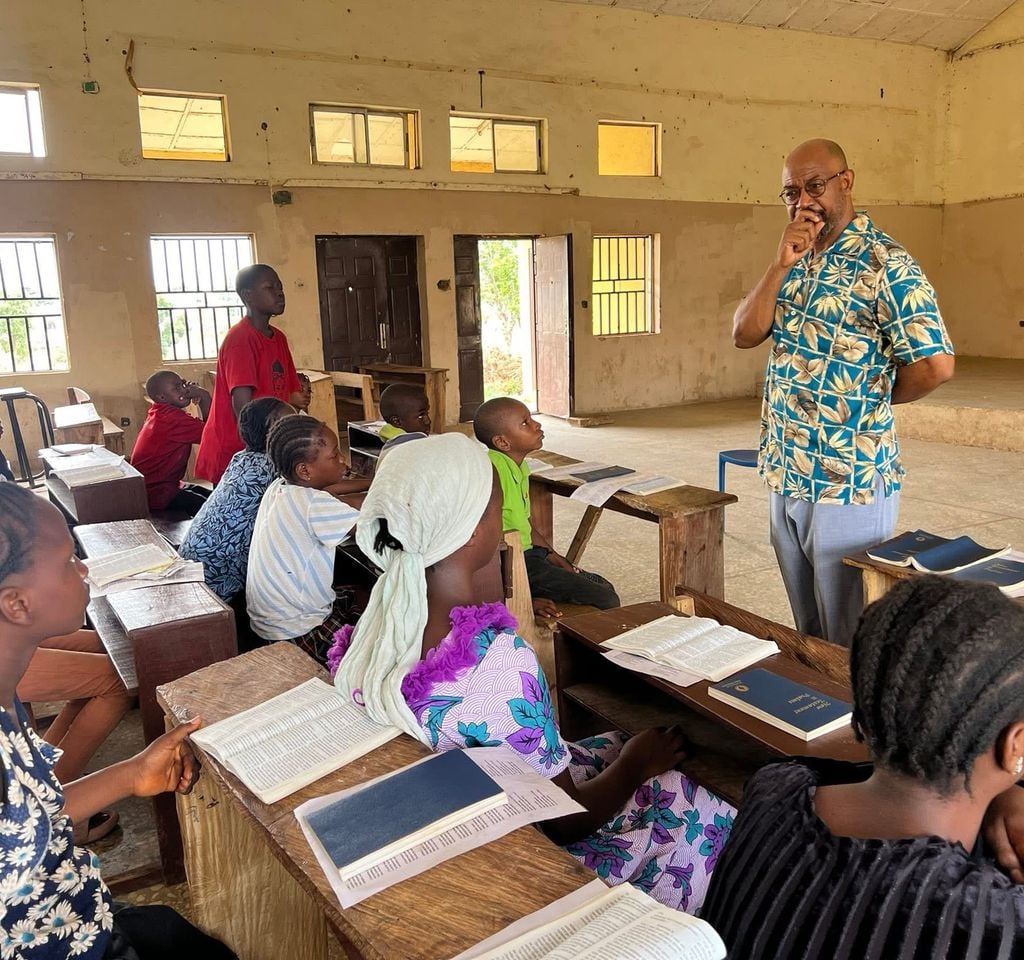Week 91 - Free Weekend Program for Childen
5/20/20254 min read
Text: Genesis 9:18–29
Date : 10th May, 2025
Theme : Responding to the Failures of the Righteous
After surviving the flood of judgment by God’s grace, Noah—a righteous man, blameless in his generation—falls into the sin of drunkenness, leading to his exposure and shame. This incident reveals not only his personal weakness but also brings to light the condition of the hearts of those around him. From this passage, we are taught sobering lessons about the persistent nature of sin. It hides in the shadows, waiting for moments of vulnerability to strike. More importantly, our reactions to the failures of others—especially the righteous—often uncover the concealed pride or humility within us. Gloating over another’s fall does not reflect spiritual insight; it reveals a heart filled with pride and wickedness
Reflecting more on the scriptures we learned :
I. Even the Righteous Can Fall Into Great Sin (Genesis 9:20–21)
Noah, the same man who found favor in the eyes of the Lord and who faithfully built the ark in obedience to God, became drunk from the fruit of his vineyard and lay uncovered in his tent. This fall serves as a solemn reminder that no one is beyond temptation or failure. Spiritual maturity, a history of obedience, and a reputation for righteousness do not exempt us from human weakness. Therefore, we must walk in humility, staying vigilant and recognizing our daily need for God’s sustaining grace. As 1 Corinthians 10:12 warns, “Let him who thinks he stands take heed lest he fall.”
II. Sin Leads to Exposure and Shame (Genesis 9:21)
Noah’s nakedness became a symbol of vulnerability and dishonor. Though the act was done in private, its consequences became known. This is often the nature of sin—it begins in secret but rarely stays there. Sin not only brings shame upon the one who commits it but also becomes a test for those who witness it. Will we respond with pride or humility? With gossip or prayer? This calls us to seek God’s grace continually, asking Him to guard our hearts and enable us to live with integrity, even when no one is watching.
In today’s culture, sin is often disguised with softer labels to soothe the conscience and to remove the shame and sorrow it brings. However, Scripture says, “Godly sorrow leads to repentance.” Therefore, in a world that excuses lies—dishonesty as fear,timidity and shyness, theft as childish / youthful cravings, sharpness, or curiosity, outbursts of anger as strength or assertiveness, pride as self-confidence, and rebellion as self-discovery—Christians are called to a higher standard; without self-righteousness, knowing we too rely daily on God’s grace, we must resist the urge to redefine sin by cultural standards. Sin, no matter how it is renamed, still destroys.
Let us call sin what Scripture calls it—not to condemn ourselves or anyone else, but so that repentance and true transformation can occur, first in our own hearts. We are being renewed by God’s Word to see as He sees and speak as He speaks (Romans 12:2). Again, this is not about casting stones but walking in the light (Ephesians 5:11), helping others—and ourselves—come out of darkness, always remembering that righteousness is found in Christ alone.
III. Do Not Delight in or Expose the Failures of Others (Genesis 9:22)
When Ham saw his father’s nakedness, he told his brothers, a careless and dishonoring act. His response was not one of concern or intercession but of exposure. In doing so, he revealed not just what he saw but what lived in his heart—a lack of reverence, pride, and mockery. This is a temptation many of us fall into today: sharing others’ weaknesses in the name of “truth” or “concern,” but with hearts secretly rejoicing in the downfall of another. Gossip, slander, mockery, or hidden delight in someone’s sin all point to a corrupt heart filled with conceit and self-righteousness.
In contrast, Shem and Japheth honored their father. Without looking on his shame, but instead focusing on Christ’s sacrifice on the Cross, they walked backward and covered him through faith in the blood of Christ. Their actions point us to the right response—covering others not in denial, but in prayer, and ultimately by pointing to Christ, who alone can cover sin. Let us examine our own hearts carefully when we witness the sins of others, remembering Proverbs 24:17 and Galatians 6:1, which urge humility and restoration, not pride and condemnation.
IV. Respond to Failure With Prayer and Wisdom (Genesis 9:23–25)
Shem and Japheth did not ignore their father’s failure, but they also did not escalate or broadcast it. Their response was marked by love, honor, and restraint. Covering sin does not mean pretending it never happened or making excuses. It means bringing it before God in prayer, seeking His wisdom for when and how to act, and approaching it with the humility that recognizes our own need for mercy.
True correction must come from a place of spiritual wisdom, not superiority. Only the blood of Christ can truly cover sin. Our role is to bring people to Him, not to parade their failures. Let us therefore be slow to speak, quick to pray, and, when needed, speak the truth in love—seasoned with grace, as taught in Ephesians 4:15 and Colossians 4:6.
V. Look to Christ Alone.
Noah’s failure ultimately shows us that even the best among us are in desperate need of mercy. Whether it is our own fall or that of someone else, the only true covering is found in Christ. We don’t get elevated by gloating over another’s fall. If we fall, we must run to the Cross in repentance. If others fall, we must intercede for them, not condemn them. The goal is always restoration, never humiliation. Our eyes must remain fixed on Christ, our example and Redeemer. He covers our shame, not by overlooking it, but by bearing it on our behalf.
In Conclusion, Genesis 9 reminds us that our response to another person’s sin reveals what is truly in our own hearts. Will we mock or intercede? Will we gossip or pray? May we choose the way of love—the way of honor, intercession, and reverence. And above all, may we look to Christ, the only one who truly covers shame with grace.
Noah did not lose his righteousness because of his sin. Likewise, those who are in Christ do not lose theirs when they stumble, though the consequences of sin are real and painful. However, for those who gloat, mock, and delight in the downfall of others, the cost may be far greater. Samson lost his eyes and died, but those who mocked him died in judgment—their destruction was not just physical, but eternal. Let us be warned, humbled, and turned evermore to the mercy of Christ.
NB : One of the greatest miseries is how God call sinners to proclaim His gospel truth, giving them the grace to live by it. We must stay watchful till the end. 1 Cor. 9:27. Let’s continue in prayer for one another.
For more true gospel messages, visit https://www.sermonaudio.com/speakers/32161/


Sovereign Grace African Foundation
Registered Charity:
1. STATE OF CALIFORNIA, USA
File No:4852691, Reg. date - 02/21/2022
2. ABUJA FCT, NIGERIA
Reg No. CAC/IT/NO 149091
Date : 7/29/2020
sgaf.org@gmail.com
